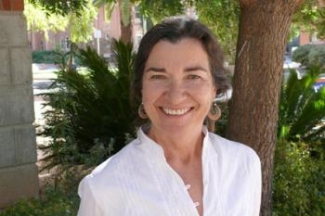By: Linda B. Green, Associate Professor, School of Anthropology and Director, Center for Latin American Studies, University of Arizona

The Yukon-Kuskokwim Delta is home to some 21,000 Yup'ik people living in fifty-six small and geographically isolated villages. The city of Bethel is the regional hub for economic, political, and cultural exchange. The Yukon-Kuskokwim Delta is an area of approximately 30,000 square miles and is roughly triangular, with the Yukon River along its northern border, the Kuskokwim River along the southeast and the Bering Sea on the southwest.
The Yup'ik communities in this area are the focus of a current research project, funded by NSF and entitled "The Invisible Wounds of War: An Ethnographic Investigation of Yup'ik combat veterans' problematic reintegration transitions into communities in southwestern Alaska." This project is an ethnographic investigation that explores the human and social consequences of war on one group: Yup'ik men who have served in combat in the U.S. military. Ethnography is a qualitative research method of gathering and synthesizing empirical data on human societies and cultures. This study examines the multidimensional aspects of reintegration of Yup'ik solders into their communities from three eras—the Vietnam War, the First Gulf War, and the ongoing conflicts often referred to as "the global war on terror." By placing the individual lives and stories of combat veterans in the currents of history and in their social realm, this research provides a lens through which to view a wide range of cultural transformations, the distribution of social opportunities, and the generational struggles that these Native men confront in their everyday lives, which simultaneously impact the well-being of their kin and communities.
Some of the key issues explored with this community are:
- The stresses and losses as a result of combat induced trauma alongside socially induced trauma.
- The lived experiences of inequality and marginalization, including race, class, and gender issues.
- Behavioral, mental health, and cultural coping mechanisms in rural villages in the Yukon-Kuskokwim Delta and in the regional hub of Bethel.
The research utilizes several data collection methods—including participant observation, oral history, key informant interviews, and historical and archival research—to test proposed hypotheses that seek to address:
- Individual experiences of trauma, loss, and reintegration, some of which may only be partially visible.
- The influence of generational ties, kin, cultural beliefs, and locale on the reintegration process over time.
- The role of the political, economic, cultural, and social factors that may inhibit or enhance seeking treatment for distress and loss.
The study is currently in its third and final phase of data collection and analysis. Preliminary findings suggest that although combat veterans and community members know full well the personal and social difficulties of returning from war, many Yup'ik youth enthusiastically sign up for active duty military service or as members of the Alaska National Guard. They do so for several significant reasons. One reason is to follow in the footsteps of kin and community members. In particular, many of the soldiers interviewed mentioned their elders and ancestors who served as Territorial Guard scouts on the tundra during World War II. They were quite literally defending their homeland as the Japanese occupied several islands along the Aleutian Chain. They also join for economic reasons, such as opportunities for jobs, education, and skills training, which are severely curtailed within their own communities. Additionally, the minimal state social protections that have been available to Yup'ik communities for decades have now been further eroded. The impact of climate change is particularly evident in the Arctic where increasingly the quantity and quality of marine and freshwater species—resources that are crucial to Yup'ik subsistence way of life—have diminished. Within this context wage considerations have become more urgent. For many, military service holds the promise of creating a future for themselves and their families.
This study will contribute to an understanding of the kinds of problems Native veterans are facing, the effects on kin and families, and the variety of coping strategies that are utilized by communities. The data produced by this project will help community residents and leaders, as well as social service organizations responsible for assisting them, to better understand the social needs that are crucial to helping veterans, kin, and communities cope with this added layer of social stress, loss, and trauma.
For further information about this project, contact Linda B. Green (lbgreen [at] email.arizona.edu).
